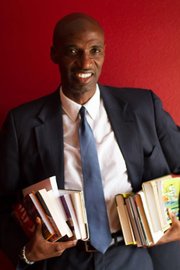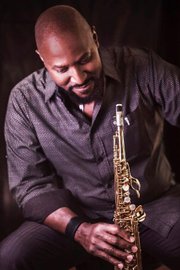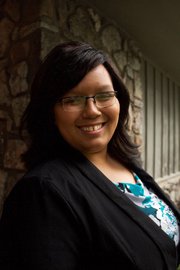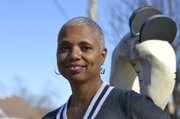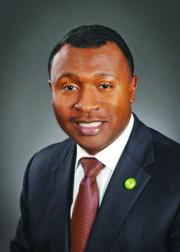"My alma mater was books, a good library ... I could spend the rest of my life reading, just satisfying my curiosity."
-- Malcolm X
A meaningful book takes on many forms: Educator. Entertainer. Time machine. A mode of virtual travel. Self-esteem builder.
For black American citizens whose history in America is dominated by the institution of slavery and its aftermath, the books their ancestors were once forbidden to read have been vital. The unforgettable work of writers such as James Baldwin, Maya Angelou, Langston Hughes and Zora Neale Hurston has served as voices in the wilderness; as steppingstones in the trail of the civil rights movement; as declarations of liberation, and, certainly, as life-shapers and life-changers.
As a nod to Black History Month, we asked notable Arkansans to discuss the books that served as their tools of inspiration.
• Joseph L. Jones, president, Arkansas Baptist College, Little Rock
The Souls of Black Folk, W.E.B. Du Bois
This is a book every citizen of the United States should read to understand race relations in America. Written at the turn of the 20th century, Du Bois was doing interdisciplinary research before the term was created. Thus, Souls of Black Folk is situated in a collage of academic canons such as history, political science, education, theology, sociology and African-American studies. The book sparked a controversial debate over which strategic educational direction black folks should undertake: industrial or liberal arts.
This book inspired me to commit my life to higher education, which led me to become a college president. It is beautifully written and a timeless tome for people trying to understand the African-American freedom struggle.
• Chauncey Holloman Pettis, coordinator, Little Rock Small Business Development Office
Between the World and Me, Ta-Nehisi Coates
This was an interesting and inspiring short read. The book boldly confronts the concept of race and American history and how it has shaped our current racial climate. Between the World and Me is written in a casual open-letter format to Coates' teenage son in a deeply personal way that captures the realistic fear of raising an African-American child in today's America. One of my favorite quotes from this book is as follows: "What I told you is what your grandparents tried to tell me: that this is your country, that this is your world, that this is your body, and you must find some way to live within the all of it."
I found this book to be a refreshingly honest yet inspiring take on navigating the difficult waters of being safe, proud and black.
• Marquis Hunt, musician and bandleader, MarQuis & MOOD
Between the World and Me, Ta-Nehisi Coates
The tendency to reach back, beyond one's lifetime, is usually what compels a credible history. I think history is best learned by starting from our current existence and appreciating our present relevance. This theory becomes more viable in Coates' book. Composed as a letter to his son, Coates offers a situational memoir about life as a black man in present-day America.
The book flows in the rhythm of contemporary and abstract jazz while evidencing the value of knowing our black ancestry -- a type of classical literary jazz, if you would. This point is critical in Coates' writing to his son. He wants his son to thrive in a world dominated by white culture whose success critically depends, as he argues, " ... on doing harm to the black body." For me, he speaks the history of my lifetime.
• Christina Shutt, executive director, Mosaic Templars Cultural Center, Arkansas Department of Heritage
The Snowy Day, Ezra Jack Keats
My mother read this book to me when I was 4 or 5 years old. It marked the first time a black protagonist was featured in a children's book in a positive light. Inner-city life wasn't portrayed in children's books before then. It reminds folks that black history is not something to which people should be exposed only in school, or as adults. It's something we should be regularly exposing our children to.
I always think about how I can show my son, who turns 3 on Feb. 20, that "there are books with kids who look like you, and there are books with kids who don't look like you -- and let's talk about both of them. Let's begin to foster empathy for other folks in that way."
• Rex R. DeLoney, artist/educator; fine arts department chairman, Little Rock Central High School; owner, Soulful Expressions
A Lesson Before Dying, Ernest J. Gaines
This is a book that has had a profound impact on my life, especially as an educator. The novel is told from the perspective of the lead character Grant Wiggins, a young African-American teacher in a rural community, faced with the enormous task of mentoring a young man (Jefferson), sentenced to death for his unknowing role in a robbery/murder. The beauty of the novel lies within the relationship and trust the teacher builds with this young man before he meets his eventual execution.
My favorite quote in the novel comes when Wiggins implores Jefferson to "show them the difference between what they think you are and what you can be."
• Garbo Hearne, owner, Pyramid Art, Books & Custom Framing and director, Hearne Fine Art
Dream A World Anew: The African American Experience and the Shaping of America, Kinshasha Holman Conwill, editor
This title is a comprehensive literary visit to the recently opened National Museum of African American History and Culture. It presents a sweeping history of black America with both the best and the worst of America's past. The journey will make you laugh, smile, jump for joy and literally cry tears of sadness. The images and the well-written text from many perspectives makes this an enjoyable read and a definite must-have reference tool.
• Terry Esper, associate professor, Sam M. Walton College of Business, University of Arkansas at Fayetteville
The Warmth of Other Suns, Isabel Wilkerson
Although Narrative of the Life of Frederick Douglass is my absolute favorite, this is a more recent book by which I was significantly inspired. The book chronicles The Great Migration, when blacks migrated from the South to cities up north and out West. I was born and raised in Detroit, to which my mom's family migrated from Tennessee and my dad's family from Mississippi. So, I was personally impacted and inspired by how families, including my own, pressed out of the segregated South in search of new opportunities and a better life for their children.
The book does a wonderful job of spotlighting the personal stories of migrants and the significant (and numerous) challenges they faced.
• State Rep. Charles Blake, District 36 (D-Little Rock)
Invisible Man, Ralph Ellison
Ellison's book has been a staple on my desk, and a constant reminder of why I have to continue to fight for my community every day. The story the narrator tells is similar to that of many black people in America: a story about the struggle with racism, individual identity and acceptance. The narrator realizes that the prejudice of others causes the world to see him only as they want to see him, and this causes limitations in his ability to grow.
Ellison's book challenges us all to force others to see us (acknowledge us) by staying true to ourselves, by accepting our unique identities and by making positive and proactive contributions to society. It's difficult, but we have to Stay True, Stay "Woke" (aware) and Stay Seen.
• Linda Rowe Thomas, fashion designer
Vintage Black Glamour, Nichelle Gainer
I've always been drawn to a diverse genre of books. I've engrossed myself in everything from the thought-provoking, to the informative, to those books that just simply entertained or left a lasting impression. I delight in finding a hidden treasure in the most unexpected places. Gainer's book continues to inspire my creative side. She has composed a brilliant depiction of style over the years via a cast of some of the most intriguing African-American women and the stories behind them.
I found this book to be perfect for the fashionista. However, there's something for everyone within the pages -- empowering, motivating stories of ordinary women rising above adversity, magnifying their gifts and contributing to their communities while gracing us with their remarkable style.
• Dushun Scarbrough, executive director, Arkansas Martin Luther King Jr. Commission
Parting the Waters: America in the King Years 1954-63, Taylor Branch
I highly recommend this important and necessary historical account of the American civil rights movement and the life of Dr. Martin Luther King Jr. Parting the Waters is the first of a three-volume history of the civil rights movement in the United States. Oftentimes, we hear about Dr. King in terms of speeches or marches, but it's another thing to read about what made him the man we celebrate today. Branch traces Dr. King's life from birth to young adulthood and invites us to follow him through some of his darker moments, which produced his greatest speeches and writings such as the "Letter From a Birmingham Jail."
Parting the Waters challenges us to assess where we are today, as present-day events have roots in the past.
• Patricia McGraw, author, lecturer, performer and retired professor of English and black studies, University of Central Arkansas, Conway
African Cultural Values: An Introduction, Kwame Gyekye
Gyekye's book, written in 1996 and reprinted in 1998, bears a dedication to my "she-ro," Maya Angelou, who spent many nights at my home when visiting Arkansas. Gyekye, a fellow professor, states: "In African life and thought, the religious is not distinguished from the nonreligious, the sacred from the secular, the spiritual from the material. In all undertakings -- whether it be cultivating, sowing, harvesting, eating, traveling -- religion is at work."
That is why I love Gyekye and Maya: They each, in their own way, show how love and respect is gained from believing that our roots in the Motherland reveal why we are here. They reveal that we should govern and share our truths, our reasons for living with all humankind. We are members of the family that He Who Is Holy has built: the human family, where all are kin.
• Patrick Oliver, Chicago- and Little Rock-based author, radio host, consultant and founder, Say It Loud! Readers & Writers
Surviving and Thriving: 365 Facts in Black Economic History, Dr. Julianne Malveaux
African-Americans throughout history have always done what was necessary to survive and thrive in the United States and abroad. This literary work by noted economist Dr. Julianne Malveaux highlights the economic success and progress made by black businesses throughout history. This inspiring book includes 365 facts, 52 archival black-and-white photos and a 20-plus-page introduction putting into context the positive impact of those businesses, many of which were created due to segregation. Arkansas natives John H. Johnson and Ernest Joshua, along with the Mosaic Templars Cultural Center, are acknowledged.
This is a must-have for those seeking to learn more about the entrepreneurial spirit that helped develop communities.
• Roderick Smothers, president, Philander Smith College, Little Rock
The Mis-Education of the Negro, Carter G. Woodson
I was a sophomore in college when I first read this book, and it literally changed my life. Woodson discusses the Eurocentric-based system of education in America and how it blatantly excluded, if you would, the contributions African-Americans had made to the history and culture of America. The book goes on to unveil points and times of black contributions. Every year, prior to Black History Month, I always go back and pull that book off my shelf. I shared it with my children, my niece and nephew, and I now share it with my mentees.
Even for the youth of today, the book is a form of empowerment and inspiration. My favorite quote: "When you control a man's thinking you do not have to worry about his actions. You do not have to tell him not to stand here or go yonder. He will find his 'proper place' and will stay in it."
Style on 02/12/2017



